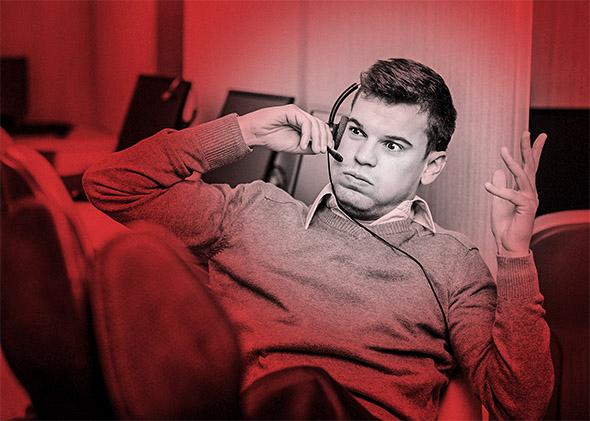The Comcast–Time Warner Cable deal is dead. The official announcement came on Friday, but over the last week it had become increasingly clear that regulators were unlikely to let the merger go through, with first the Department of Justice and then the Federal Communications Commission appearing ready to recommend measures that would significantly impede if not block the transaction altogether.
“Today, we move on,” Comcast CEO Brian Roberts said in a statement. “Of course, we would have liked to bring our great products to new cities, but we structured this deal so that if the government didn’t agree, we could walk away.”
Comcast’s decision spells the end of a deal that would have combined the two biggest cable operators in the U.S. to create an Internet and cable behemoth. Together, Comcast and Time Warner would have served approximately 30 million customers and controlled roughly 57 percent of the market for broadband and 30 percent of the market for pay TV. Merging with Time Warner Cable would also have handed Comcast the keys to New York and Los Angeles—two massive markets that it didn’t already control. After 14 months of planning and lobbying by the telecom giants, the conclusion felt abrupt. But considering how almost universally Comcast is disliked—by consumers, other companies, and apparently regulators—it’s also not terribly surprising.
Comcast, you might recall, was voted “Worst Company in America” in 2014. Time Warner Cable was a close runner-up. Comcast had captured the worst-company title once before, in 2010, but last year it seemed intent on outdoing itself. In July, there was the harrowing 18-minute call between a Comcast company rep and Ryan Block, a tech journalist trying to disconnect his service. Then the company’s absurdly detailed manual for “retention specialists”—the people who are tasked with keeping customers in Comcast’s network—leaked to the press. On top of that, in October reports surfaced that Comcast had successfully gotten a man fired from his job for complaining about its service.
These moments may have felt extreme and viral-ready, but they were also symptomatic of an industry with a huge customer service problem. Despite the fact that cable keeps getting more expensive, the support offered by America’s biggest providers has remained inexplicably bad. When you’re suffering through the Comcast hotline’s droning elevator music, or dealing with the third consecutive company rep who can’t or won’t resolve a broadband problem, it’s easy to feel like cable subscribers have no real recourse. But now that Comcast’s attempted merger has imploded, for once it seems possible that all those aggravated consumers really did matter. To loosely paraphrase Faulkner, the fate of the Comcast–Time Warner Cable deal became the sum of our customer service misfortunes.
“The fact that these two companies have such dismal performance records in the minds of consumers was undoubtedly a factor in building opposition to this transaction,” says Michael Copps, a former commissioner of the FCC and special adviser to Common Cause, a public interest group that had opposed the Comcast–Time Warner merger. “Communications issues have assumed a new importance in the minds of American consumers.”
The ire doesn’t stop with subscribers. On Tuesday, six senators penned a letter urging officials at the Justice Department and the FCC to reject the proposed merger. Television executives told the New York Times that they already had enough trouble getting their content streamed in Comcast markets without the company gaining Time Warner Cable’s assets as an additional bargaining chip. And regulators worried that the deal would let an already massive company consolidate even more power. Had the merger gone through, Comcast would have become “an unavoidable gatekeeper for Internet based-services that rely on a broadband connection to reach consumers,” the Justice Department wrote in a statement released Friday.
Comcast, for its part, adamantly framed the acquisition as beneficial to consumers. But regulators were skeptical, and Comcast’s record in past deals also didn’t do it any favors. The New York Times reported earlier this week that Comcast was being scrutinized over whether it influenced Hulu’s operations by weighing in on a potential sale in July 2013—something the cable company promised not to do when it acquired NBCUniversal (and thus a stake in Hulu) in 2011. The FCC was reportedly worried that Comcast’s questionable compliance with that and several other conditions in the NBCUniversal deal didn’t bode well for promises it might make in taking over Time Warner.
Now, both the Justice Department and the FCC are hailing Comcast’s decision to back out as a win for content creators and content users alike. “The companies’ decision to abandon this deal is the best outcome for American consumers,” Attorney General Eric Holder said.
In other words, the Comcast–Time Warner deal may have been troubled from the start.
“Just like when you deal with juries, to the minds of jurors that are off the street, there’s a good guy–bad guy dynamic, and the more mud that’s being slung at the parties, the more regulators are under pressure to do the right thing by going after the bad guys,” says Daryl Lim, who teaches antitrust law at the John Marshall Law School. “I’m not saying that Comcast and TWC were the bad guys,” he adds, but poor customer service “certainly paints the proposed merger in a light that is distracting and doesn’t help their case.”
In related news, Charter Communications, another cable and high-speed Internet provider, is said to already be exploring a bid for the newly available Time Warner Cable, which also might be looking into an acquisition of its own. Spurned corporate deal-makers rebound fast.
